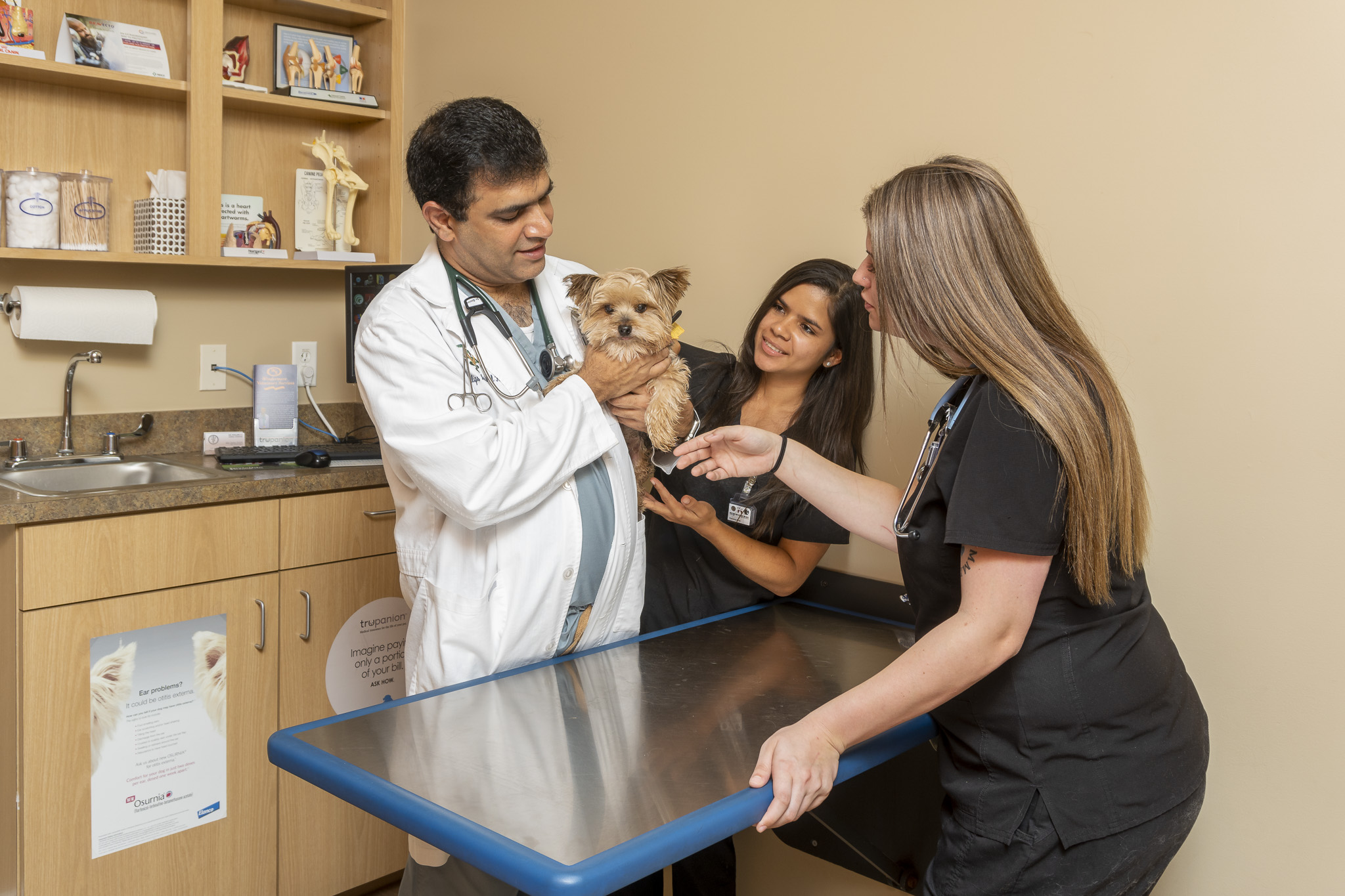All pets may shake and tremble from time to time, but there may be some instances where shaking may be cause for concern. To understand why your pet is shaking often, it starts by observing any possible triggers in the pet’s environment. In some cases, the cause of a pet’s shaking may not be as simple as observation, and additional testing by a certified veterinarian may be necessary.
Common Causes of Shaking or Trembling in Pets
Shaking in pets could be an indication of pain, or in other cases it may simply be an emotional response. Not every cause of shaking in animals will be an emergency. Anything from a temperature change to a pet meeting new people may cause shaking or trembling.
Anxiety
Some dogs may have chronic anxiety similar to humans or experience anxiety when something in their environment changes. Things such as loud noise, crowded spaces, or exposure to a different environment could all cause shaking or trembling in a pet. Just like humans, pets can be sensitive to change or things they deem unfamiliar.
Cold Temperature
Cold temperatures can also trigger a shivering response in animals. If you live in a cold climate or turn on the air conditioning too high, dogs may shiver just like humans do. In these instances, it may be worth investing in a sweater or blanket for your furry friend or bringing them to a calmer room temperature.
Excitement
Just like people, dogs can get overexcited. When a pet’s owner gets home, they may be excited to see you and start shaking or trembling out of pure happiness or excitement. A pet may also get excited in anticipation of food or a walk and start shaking with nervous energy. A pet could also get excited by seeing another animal they want to chase or play with.
Severe Cases of Shaking or Trembling in Pets
While most cases of shaking or trembling are common, if the shaking becomes chronic or unstable it may be time for further evaluation.
Seizure Disorder

Some dogs can suffer neurological conditions like humans can. Epilepsy in animals can lead to severe seizures which can trigger their bodies to shake and tremble. Epilepsy can be dangerous in animals if the root cause is not addressed. If seizures keep occurring, it’s important to contact a vet to determine the next steps.
Food Poisoning/Toxicity
Foods like onions or grapes can be toxic to animals. Other human substances such as xylitol or cigarettes can also cause food poisoning in animals. One of the common symptoms of digestive poisoning in animals is severe shaking and trembling. If your pet has ingested anything unusual recently, contact a vet immediately for medical treatment and evaluation.
Distemper
Affecting the nervous and respiratory systems of animals, distemper can occur when pets have not received certain vaccines to protect them from dangerous viruses. Distemper usually occurs in dogs and can be treated by a veterinarian if the viral shaking is ongoing. Some other signs of distemper include:
- Limited appetite
- Fever
- Lethargy
- Coughing
- Discharge from the eyes
Ways to Prevent Shaking or Trembling in Pets
Once you’ve determined the root cause of your pet’s shaking or trembling, it will be easier to move toward the next steps in finding a solution to stop the shaking altogether. Some common steps to prevent shaking in animals include keeping them updated on their immunizations, keeping them away from dangerous foods and other harmful substances, or keeping your pet warm. Another way to prevent severe shaking is also to encourage your pet to keep a healthy, manageable weight for their breed type.
When It May Be Time to See a Vet
If the cause of your pet’s shaking is not an environmental factor such as chilly weather, a vet may be able to conduct further investigation and find an appropriate treatment for your animal. If your pet’s shaking is also accompanied by drooling, lethargy, or vomiting, it’s important to immediately contact your local vet for assistance.








